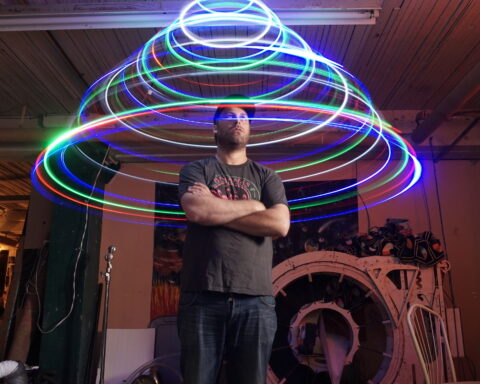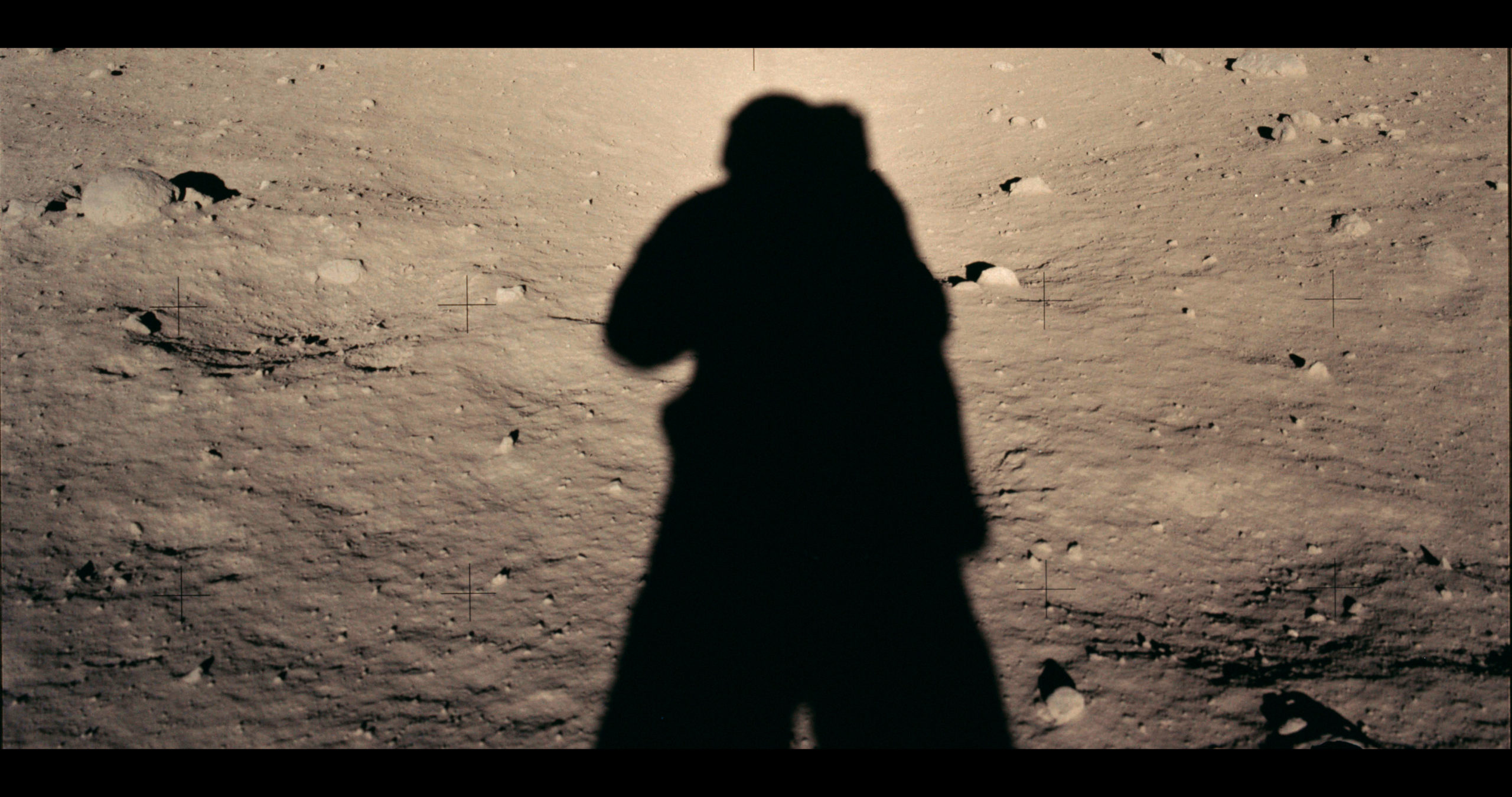The night before New Year’s Eve, veteran filmmaker Pepita Ferrari lost her life to cancer. While her life was cut short, her contribution to documentary cinema was long and in early 2019 the industry celebrated her as a writer, filmmaker, producer, champion of documentary, and a generous mentor to emerging filmmakers. As a beneficiary of Pepita’s mentorship, I can attest to her generosity. Her gentle, consistent guidance did not begin or end with a particular project. Pepita was committed to helping emerging filmmakers build a body of work as well as helping them to cultivate their creative lives. The breadth and depth of Pepita’s mentorship is something I’m only beginning to understand and long for, now that it is gone.
I met Pepita in the fall of 2011. In the hopes of learning to write for documentary, I enrolled in an eight-week workshop, The Art of Writing for Documentary: From Idea to Proposal, led by Pepita and offered by the Quebec Writer’s Federation. I did not have the “minimal experience in filmmaking” suggested in the workshop description but did have an idea and the determination to learn. So when Pepita made me an offer, one month into the workshop, I was completely taken aback: “Even if you don’t get through the whole proposal by the end of the workshop, I’ll be happy to give it one read through with some comments up to six weeks after.” She asked for nothing in return. I couldn’t believe my lucky break. I was so thrilled to take Pepita up on her offer that I didn’t insist on some kind of payment, even a token one, in exchange for her valuable expertise. I wish I had. Now I know just how much pro bono work Pepita did over the years, how much she gave to others, often at her own expense, and have experienced for myself the near impossible challenge of trying to make a living as a documentary filmmaker.
After the workshop ended, Pepita made good on her offer and then some. She reviewed the draft proposal, gave her feedback and introduced me to producer Katarina Soukup of Catbird Productions. Pepita had a hunch that Katarina, the project and me would be a good fit. Her instincts were correct. Katarina Soukup optioned the proposal, Pepita became the official mentor-consultant on the documentary and after a long and difficult two and a half years, Okpik’s Dream aired on CBC and then documentary Channel in 2015. An idea Pepita helped to spawn, along with the contribution of the many professionals who worked it, went on to be nominated for a Canadian Screen Award, win a Grand Prize at the Montreal First Peoples Festival and made me a laureate of the Counsel of Arts and Letters of Quebec Prize: Work of an Emerging Montreal Artist, 2015.
OKPIK‘S DREAM | Official Trailer from Catbird Productions on Vimeo.
Okpik’s Dream was the first time Katarina worked with Pepita. She found Pepita to be a thoughtful and extremely structured mentor, one who “strongly believed in the importance of transferring knowledge and skills to the next generation of filmmakers.” Katarina highly recommends first-time and emerging filmmakers to have mentors. It helps “to support the process of getting all the creative intentions the filmmaker has in their head to actually be on screen in the final film,” and also makes a project seem “less risky” to funders and broadcasters. Katarina’s words accurately describe Pepita’s mentorship.
Pepita rarely imposed her own ideas. She resisted the temptation of telling another filmmaker what to do. Instead Pepita would say things like, “Find a way to get us closer to the subject,” “Think about how [the audience] will interpret that image,” “Expand on this idea.” And when the process of making a documentary overwhelmed me, when I was lost or failed on location or in the editing room, Pepita would simply coach me on how to learn from the setback, “Next time, think of the top three things you want to come home with.” To help ground me, Pepita liked to remind me of the original intentions expressed in the written proposal. She never lamented my lack of experience or complained that first time filmmakers with little experience were flooding documentary cinema. As she did in the workshop, Pepita naturally focused on what was working and where potential could be exposed or enhanced in the filmmaker or the project or both.
But that wasn’t all. Pepita took a holistic point of view to mentorship. She made the time to care for her students’ creative spirit. Three days after Okpik’s Dream picture locked, Pepita emailed a sage warning: “Don’t be surprised if there’s a bit of a postpartum effect that hits at some point. When you work off sheer adrenaline the way you have … your mind and body will naturally have a reaction once you don’t have to do it anymore.” At the time, I brushed off her words. I wouldn’t be depressed, I’d be relieved to longer be making a doc that Katarina Soukup calls, “no ordinary ‘first film.’” Over the course of Okpik’s Dream, I travelled to arctic Quebec while heavily pregnant and then for the first two years of our son’s life. We travelled 500 km by skidoo with a small crew over rough, windswept tundra, camping along the way in -50 C nights, while filming an Inuit dog sled race of 15 sled teams and 180 Inuit huskies. At times, the weight of the cross-cultural and ethical questions I asked around making a doc about Inuit culture as a non-Inuit seemed unbearable. I knew that without Pepita’s mentorship, I might have been completely swallowed by this project. But in the euphoria of picture lock, I didn’t want to hear that the director’s challenges may not be over. I ignored her words. A couple months later, a crippling creative postpartum began and lasted for about as long as it took to make Okpik’s Dream.
Capturing Reality: The Art of Documentary, Pepita Ferrari, provided by the National Film Board of Canada
I wish I could reflect on that dragon-like postpartum with Pepita now. I wish I could ask her about her own experiences with it. I believe she was speaking from her own experience but I do not know. I find myself wishing, aching to discuss many things with her, particularly her past work. Pepita rarely spoke of her past successes, who she knew in the industry or what it was like to interview some of the great minds in documentary cinema like Errol Morris, Werner Herzog, and Alanis Obomsawin for the NFB documentary Capturing Reality: The Art of Documentary. Pepita never taught by saying, “Well, when I …” She preferred to focus on the present, on ideas and creativity, the richness of her life, the devotion of Louis Piché, her life partner of 32 years, and her students’ work.
I miss Pepita and her openness to talking, thinking and relishing the process of figuring out how ideas could be brought to life. I miss her curiousity and our conversations. During one of our last exchanges, Pepita and I talked about how increasingly difficult it is for producers and filmmakers to make a living. If the documentary industry stayed on its current trajectory, she warned, career producers and filmmakers wouldn’t exist in the near future. The industry would become an industry of first timers, even more than it is now. Like so many of our conversations, that one was cut short. I know she had more to say about this. That said, she didn’t dissuade me from pushing ideas forward. She encouraged me while never overpromising or overpraising. And she urged me to find ways to make a decent living while also making documentaries. She didn’t believe that creatives should take a vow of poverty for their craft.
Thank you, Pepita for your mentorship and friendship. Your belief in me helped me rise to the challenge of becoming a documentary filmmaker. I am determined to make another film if only to show that I truly listened to my mentor.












